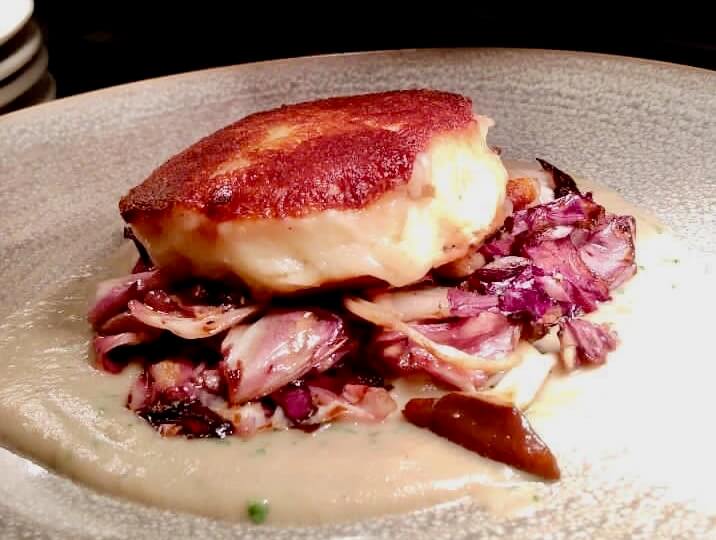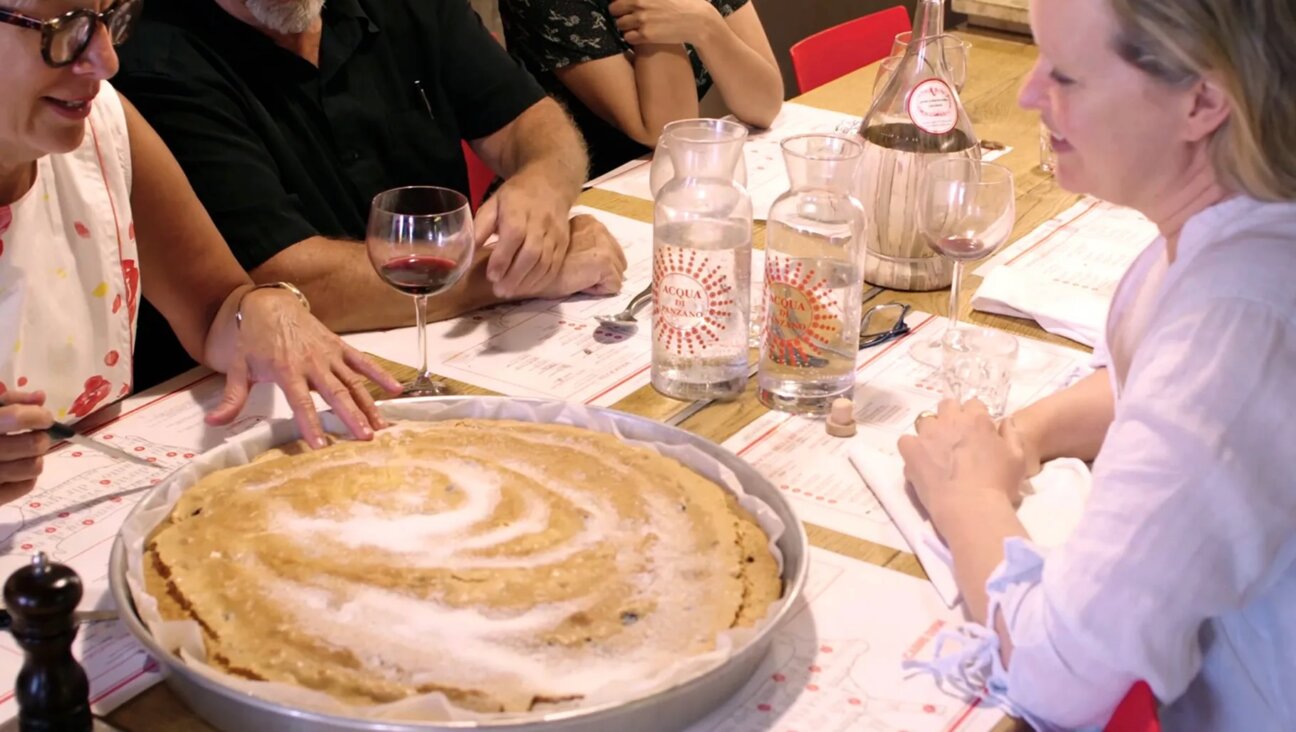Joan Nathan’s Perfect Poppy-Seed Hamantaschen

A magnificent array of hamantaschen from Joan Nathan’s new ‘King Solomon’s Table.’ Image by Gabriela Herman
When I was asked to speak to the student body at Phillips Exeter Academy, I thought about the irony of the situation. When I was young, Exeter had very few Jewish students, all male, and those who were open about their Judaism felt isolated.
That is no longer the case. During my two days at Exeter, I cooked with not only Jewish students, but also a diverse group of teenagers from around the world.

The latest cookbook from Jewish food doyenne Joan Nathan includes scrumptious recipes from around the world.
That night, about 60 students attended a Shabbat dinner that a dozen students cooked with me, all organized by Rabbi Jennifer Marx Asch, the adviser to the Exeter Jewish community. The rabbi bakes hamantaschen each year from a recipe from her late grandmother, Ruth Cohen Marx, whom everyone called Oma. Born in Berlin, she fled to Tel Aviv in the late 1930s and finally settled in Birmingham, Alabama, in the 1950s.
Until her death, each year, just before Purim, Oma sent her grandchildren hamantaschen, wrapped individually in plastic wrap and packed carefully in a recycled butter cookie tin. Although Oma is gone, her granddaughter still has the recipe, lovingly typed out on a manual typewriter.
Yields about 60 cookies
¼ cup (50 grams) sugar
1 cup (2 sticks/226 grams) unsalted butter, at room temperature, or coconut oil cut into ½-inch squares
2 large eggs, separated
1 tablespoon (15 ml) distilled white vinegar
2½ cups (345 grams) unbleached all-purpose flour
½ teaspoon sea salt
2 cups poppy seed filling (See below)
1) Using a food processor equipped with a steel blade, cream the sugar and the butter or coconut oil. Then add the egg yolks, vinegar, 3 tablespoons of water, flour and salt. Process until the dough comes together in a ball.
2) Divide the dough in half, wrap in plastic wrap and refrigerate, along with the reserved egg whites, for a few hours or overnight.
3) Preheat the oven to[ 375˚ F and line two baking sheets with parchment paper. Remove the dough from the refrigerator and let sit at room temperature for about 10 minutes.
4) Roll one disc of dough on a lightly floured work surface to a thickness of 1⁄8 REDUCE inch. Cut the dough into 2 ½-inch circles, rerolling and cutting the scraps to use all the dough. Put ½ teaspoon of filling in the center of each circle. To shape the hamantaschen, first brush a little reserved egg white around the rim of the circle with your finger. Then lift the edges of the dough up to form a triangle around the filling, leaving a little filling exposed.
5) Transfer the hamantaschen to the prepared baking sheets. Repeat with the remaining dough. Brush the unbaked hamantaschen with a little egg white and bake for 15–20 minutes, or until golden.
Poppy Seed Filling
Yields 2½ cups filling
½ cup (65 grams) poppy seeds
½ cup (110 ml) milk or soy milk
½ cup (100 grams) sugar
10 pitted dates or dried figs (84 grams), chopped
¼ cup (35 grams) raisins
¼ cup (35 grams) walnuts, roughly chopped
¾ cup (85 grams) ground almonds
Grated zest and juice of 1 lemon
1 egg
1) Put the poppy seeds in a small saucepan. Cover with the milk and simmer for a few minutes, stirring occasionally. Turn off the heat and cool.
2) Transfer the poppy seeds and milk to a food processor fitted with a steel blade. Add the sugar, dates or figs, raisins, walnuts, almonds, lemon zest, lemon juice and egg yolk. Pulse until just combined. Refrigerate until ready to use, or up to 2 days. You may also freeze the filling for up to 6 months.
Excerpted from “King Solomon’s Table” by Joan Nathan. Copyright © 2017 by Random House. Excerpted by permission of Alfred A. Knopf, a division of Random House LLC. All rights reserved. No part of this excerpt may be reproduced or reprinted without permission in writing from the publisher.
A message from our Publisher & CEO Rachel Fishman Feddersen

I hope you appreciated this article. Before you go, I’d like to ask you to please support the Forward’s award-winning, nonprofit journalism so that we can be prepared for whatever news 2025 brings.
At a time when other newsrooms are closing or cutting back, the Forward has removed its paywall and invested additional resources to report on the ground from Israel and around the U.S. on the impact of the war, rising antisemitism and polarized discourse.
Readers like you make it all possible. Support our work by becoming a Forward Member and connect with our journalism and your community.
— Rachel Fishman Feddersen, Publisher and CEO























